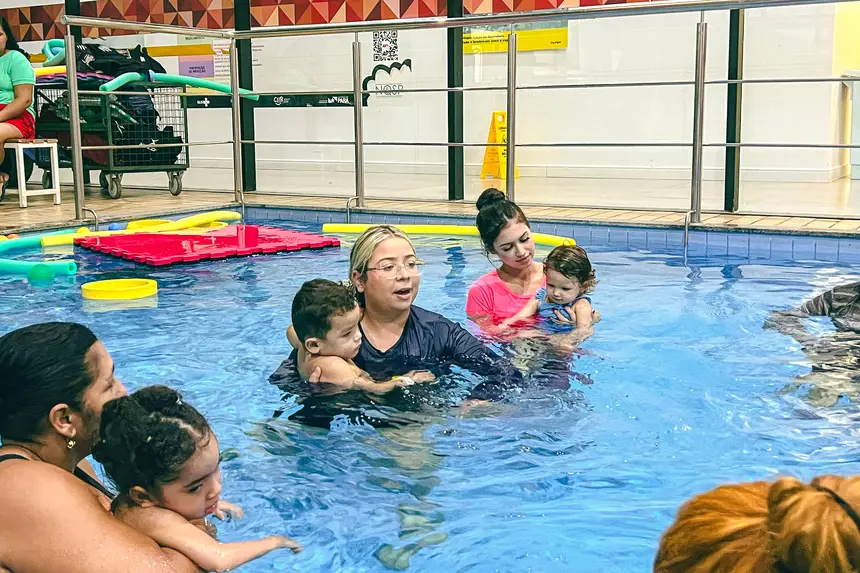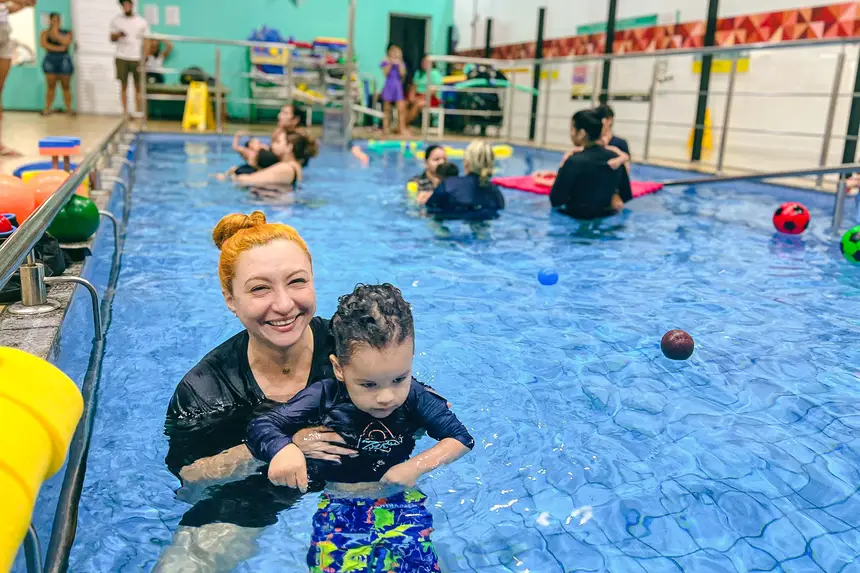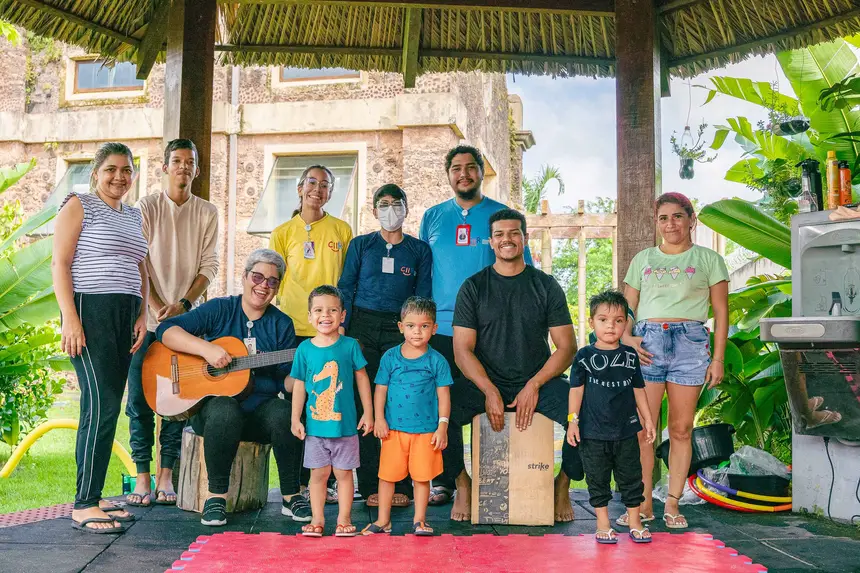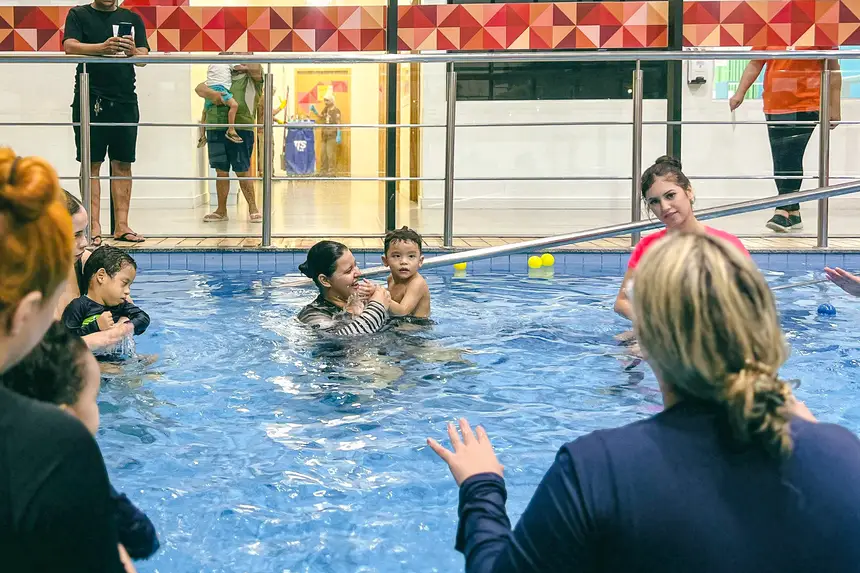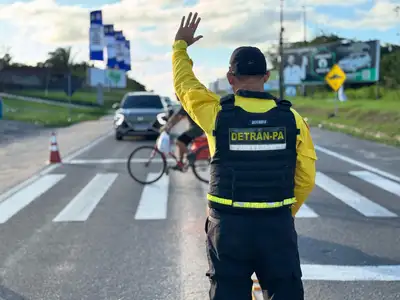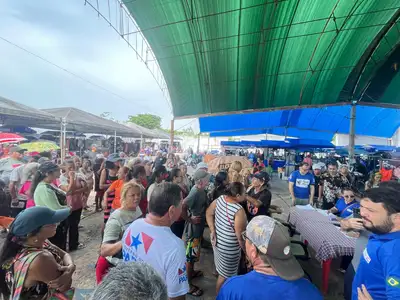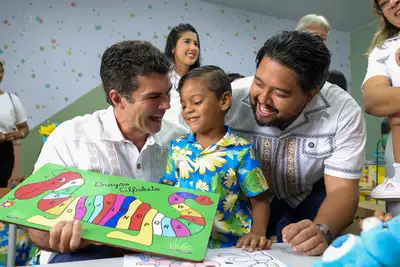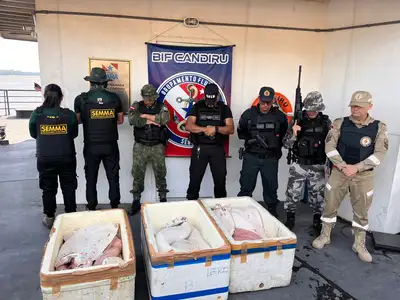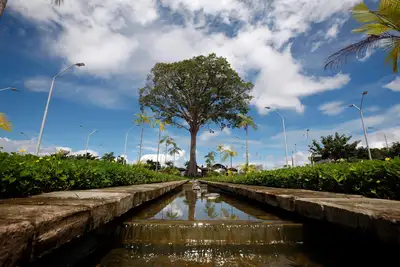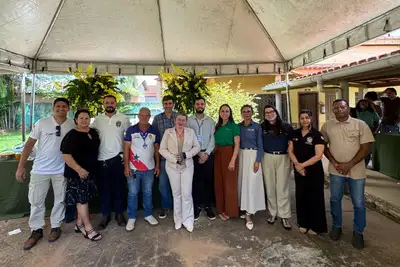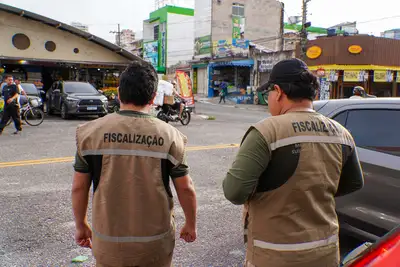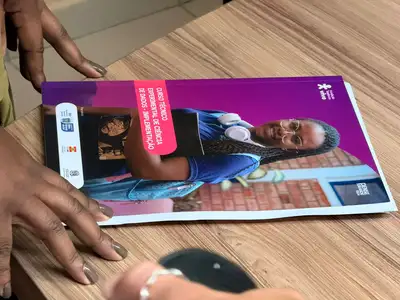At CIIR, playful and therapeutic activities boost child development with family participation
Early Stimulation Group involves a multidisciplinary team in actions that strengthen the bond and expand children's skills
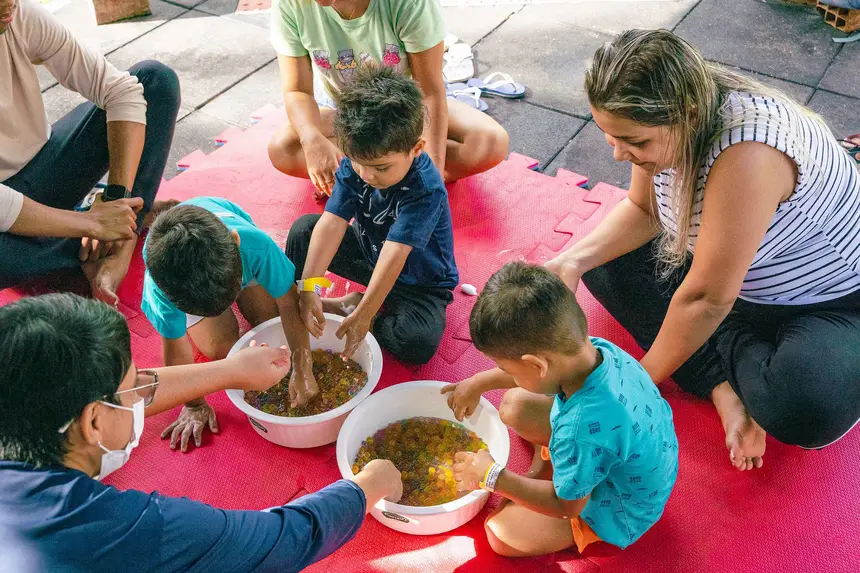
Focusing on neuropsychomotor promotion and the prevention of developmental delays, the Integrated Center for Inclusion and Rehabilitation (CIIR), in Belém, carries out a series of playful and therapeutic activities aimed at children aged 0 to 3 years and 11 months, assisted by the institution, during the month of July. The Early Stimulation Group's program includes activities with sand, grass, balls, motor circuits, picnics, and sensory play, conducted in different spaces within the unit. The proposals were planned and adapted for the school holiday period.
Among the activities, the playful sessions developed in CIIR's heated therapeutic pool stand out, which take place until July 11. The space is used as a central resource to promote multisensory stimuli. One of the main differentiators of the initiative is the active participation of parents, family members, or guardians, who closely accompany the sessions and learn to replicate the activities developed with the technical team at home.
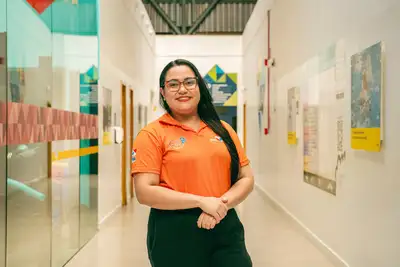
The action is organized by the coordination of the Specialized Center for Physical, Auditory, Visual, and Intellectual Rehabilitation of CIIR (CER IV). According to nurse Monica Santiago from CER IV, the group is led by a multidisciplinary team composed of a physiotherapist, occupational therapist, speech therapist, psychologist, music therapist, and nurse. "The actions are planned to stimulate motor, cognitive, sensory, social, and language skills, respecting each child's pace, as well as strengthening the bond with their caregivers," she states.
She emphasizes that aquatic activities favor body perception, autonomy, self-esteem, and socialization of children. "The pool provides a safe and welcoming environment, in which caregivers actively participate, making the therapeutic moment even richer and more affectionate," Monica highlights.
Exchange and learning with family support - During the sessions, which last an average of 50 minutes, children engage in activities accompanied by family members and supervised by professionals. Physiotherapist Luiza Fonseca explains that the stimuli are applied using playful and therapeutic resources specific to the age group served. "We use assisted flotation, colorful and textured toys, as well as music and verbal interactions, which favor motor coordination, balance, social engagement, and communication," she details.

Viviane Souza is a mother and full-time caregiver of little Ravi Souza, 2 years and 11 months old, diagnosed with cerebral palsy. For her, family participation in the therapeutic process is essential.
"This bond between mother and child in the pool is fundamental. We learn from the team and can apply the stimuli at home, which greatly facilitates his development," said the housewife.
She also highlights the assistance at CIIR. "When we receive a diagnosis, what we want most is a place where we feel welcomed. And here I found that. The team cares, guides, and values the development of the children," she reports.
Continuous and integrated care - The activities carried out by the Early Stimulation Group integrate the continuous care offered by CIIR to children in the rehabilitation process. The entire proposal seeks to expand the possibilities for learning and development, both during the sessions and in the family environment, through close monitoring by caregivers.
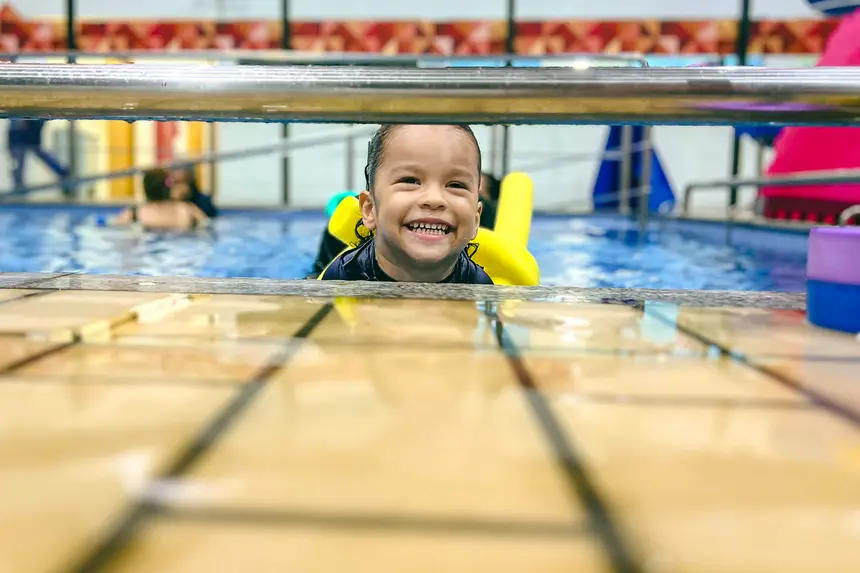
Reference - CIIR is a reference in Pará for medium and high complexity assistance to People with Disabilities (PwD) visual, physical, auditory, and intellectual. Users can access the Center's services through referrals from health units, welcomed by the Regulation Center of each municipality, which in turn forwards to State Regulation. The request will be analyzed according to the user's profile by the State Regulation System (SER).
Service: The Integrated Center for Inclusion and Rehabilitation is an agency of the Government of Pará managed by the National Institute for Social and Human Development (INDSH), in partnership with the State Department of Public Health (Sespa). The unit operates at Rodovia Arthur Bernardes, No. 1,000, in Belém. For more information: (91) 4042-2157 /58 /59.
Text: Tarcísio Barbosa (Ascom CIIR)


